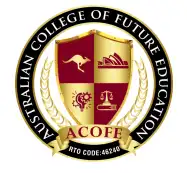Recognition of Prior Learning Policy and Procedure
- Home
- Recognition of Prior Learning Policy and Procedure

Recognition of Prior Learning Policy and Procedure
Purpose
The purpose of this policy is to outline how Australian Academy of Future Education Pty Ltd T/A Australian
College of Future Education intend to meet the regulatory requirements relating to recognition of prior skills
and knowledge as per the following clauses of the Standards for Registered Training Organisations (RTOs)
2015: –
Clause 3.5
The RTO accepts and provides credit to learners for units of competency and/or modules (unless licensing or
regulatory requirements prevent this) where these are evidenced by:
- AQF certification documentation issued by any other RTO or AQF authorised issuing organisation, or,
- authenticated VET transcripts issued by the Registrar.
Clause 1.12
The RTO offers recognition of prior learning to individual learners.
Scope
This policy applies to all staff involved in the enrolment and assessment of students.
Policy
Recognition of Prior Learning
1. Recognition is made available to any person commencing a course with Australian College of Future
Education.
2. Recognition of Prior Learning (RPL) is the determination, on an individual basis, of the skills and
knowledge currently held by the learner acquired through formal, non-formal and informal learning.
3. Recognition is used to determine the advanced standing or ‘credit’, for a training program, that the
learner may be awarded as a result of their prior knowledge, skills and experience.
4. Recognition is an alternative pathway to an AQF qualification or Statement of Attainment.
5. Recognition is an Assessment process, and as such is subject to all provisions of the Australian
College of Future Education “Training and Assessment Policy and Procedure”.
6. Recognition assessment decisions must comply with Principles of Assessment and Rules of Evidence
as outlined in the Standards for RTOs 2015 and in Australian College of Future Education Assessment
Policy.
7. All clients may apply for formal recognition of existing competencies against a AQF qualification /
Accredited course / unit of competency /module that Australian College of Future Education is
registered to deliver.
8. The onus is upon the candidate to demonstrate competence to the satisfaction of the assessors,
including the provision of certification documentation.
9. Competency may be derived from many sources:
- Work experiences
- Work product
- Life experience
- Training programs offered by industry, private or community-based providers which may or
may not have been formally recognised - Training programs undertaken overseas (which may or may not be accredited in that
country) - Informal learning programs
- Certification from another RTO
10. Only accredited and approved assessors will conduct Recognition assessments on behalf of
Australian College of Future Education.
11. Recognition assessments must comply with the assessment requirements detailed in the relevant
Training Package and VET Accredited course.
12. Recognition application and assessments are subject to fees as outlined in Australian College of
Future Education ‘Schedule of Fees’.
13. The minimum acceptable claim for Recognition is a Unit of competency/module.
14. Certification documentation will not be issued until all relevant fees are paid in full.
15. Information of Recognition processes and arrangements are provided to all clients and prospective
clients upon enrolment.
16. An applicant, who has undertaken a course that is not competency based, can gain credit transfer
into a competency-based course if the mapping of competency can be justified.
Procedure
This procedure outlines the responsibilities and processes involved in recognition of prior learning. This is to
ensure that Australian College of Future Education meets the requirements as outlined in the Standards for
RTOs 2015 clauses 3.5 and 1.12.
Recognition of Prior Learning
Student Support Officer
1. Discuss with the client to determine if the client already has knowledge or skills that they would
like to apply for recognition.
2. Provide a copy of the RPL Kit to the student and advise them to complete the self-assessment
section and email it back.
3. Advise the client of the RPL processing fees that apply
4. Once the student has sent back the self-assessment questions book in a time for a Trainer /
Assessor to contact the student.
Trainer / Assessor
5. Contact the client and discuss their self-assessment questionnaire.
6. If the Trainer / Assessor feels that the student would be successful in an RPL conversation, advise
the student to continue filling out the RPL application and start gathering their evidence.
7. Once the student submits their evidence, the Trainer / Assessor will assess the application in line
with the assessment policy.
8. Notify the client about the assessment outcome of RPL.
9. Update the details in the SMS.
10. Update the outcome in the Client file.

